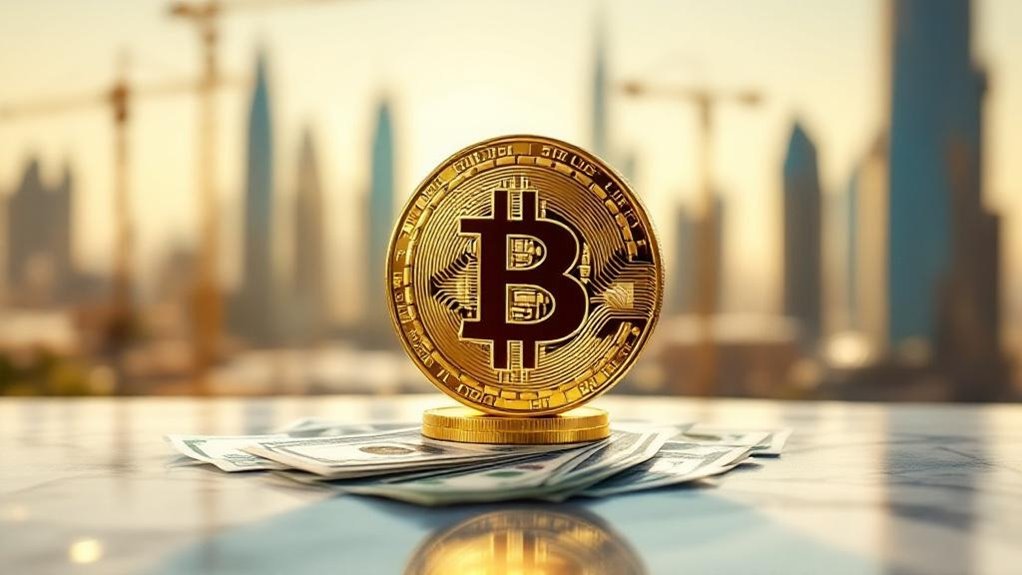MemeCoinCook.com serves up spicy crypto memes and info for entertainment only—this ain’t financial, investment, legal, or professional advice! Whipped up with AI flair, our content might have some half-baked bits, so DYOR before you dive into the crypto pot. NFA, folks—we’re just tossing out ideas, not guarantees. We make no claims about the accuracy, legality, or tastiness of our posts. Sip our content at your own risk! Check our Terms of Use for the full recipe.

Trump Hints at U.S. Entry Into Middle East Turmoil as Global Markets Teeter
While traditional military interventions once defined American involvement in the Middle East, President Trump’s administration is pivoting toward massive economic deals and technology partnerships. The latest diplomatic efforts showcase a stark departure from previous approaches, with commerce replacing conflict as the primary tool of engagement.
The numbers speak volumes about this economic realignment. Saudi Arabia has pledged a staggering $600 billion investment in the United States, while a separate $142 billion arms deal awaits Congressional approval. Not to be outdone, the UAE secured a $200 billion AI sector agreement, and Qatar committed $10 billion to upgrade the Al Udeid airbase. These aren’t pocket change transactions – they’re generation-defining commitments that could reshape regional dynamics. Qatar also gifted Trump a luxury 747 jet valued at $400 million.
Trump’s vision presents the Middle East as a future hub of commerce and technology rather than conflict. He’s praised regional leaders for moving beyond historical grievances, taking subtle jabs at previous “so-called nation-builders” who favored military solutions. The message is clear: export technology, not terrorism. Build cities, not bases.
Commerce replacing conflict: export technology, not terrorism; build cities, not bases.
However, this rosy economic picture faces serious challenges. Trump’s Gaza Strip proposal has hit major roadblocks, with Arab states expressing concern over governance plans and potential population transfers. The plan envisions transforming Gaza into the “Riviera of the Middle East”, though it requires removing over 50 million tonnes of debris and unexploded ordnance. International law complicates matters further, prohibiting forced relocations.
Meanwhile, the administration seeks to renegotiate nuclear deals with Iran while addressing regional security concerns.
The global impact extends beyond Middle Eastern borders. Trump’s high-tariff policies have introduced significant economic uncertainty worldwide, keeping markets on edge. The phrase “teetering” might be dramatic, but global investors are definitely watching these developments with nervous energy – perhaps checking their portfolios more often than their Instagram feeds.
The U.S. military presence isn’t disappearing entirely. Those massive arms deals and airbase investments signal a strategic realignment rather than withdrawal. It’s less boots on the ground, more tech in the cloud.
As nuclear talks with Iran loom and domestic opposition builds, the administration faces critical tests. Will this commerce-first approach succeed where military interventions failed? The Middle East’s transformation from battlefield to marketplace represents a bold experiment in modern diplomacy, with trillion-dollar stakes and generational consequences.

